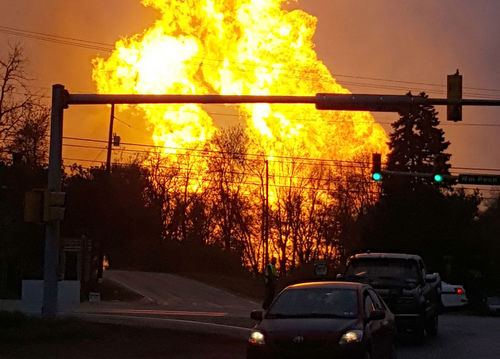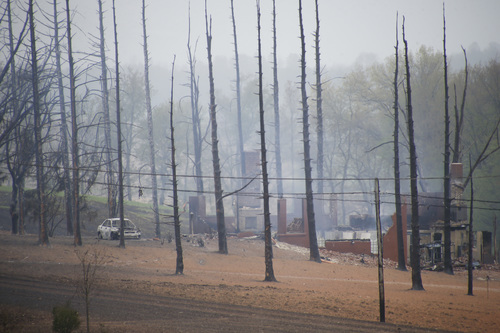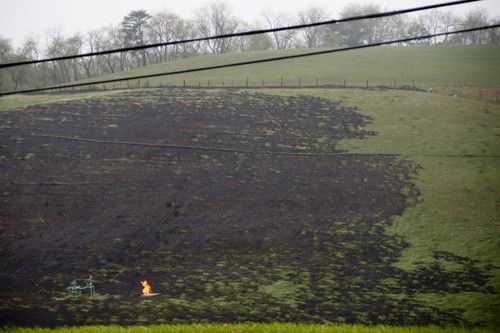It’s too late once an accident happens.
There is a history of accidents at compressor stations and along transmission pipelines across the country.
- Leaks are missed.
- Procedures are not followed.
- Inspections and oversight are primarily the responsibility of the company that constructed them.
Pipelines that have been built recently are failing at the same rate as those constructed in the 1940’s.
Once a pipeline and related facilities like a compressor station are built, oversight is the responsibility of the U.S. Department of Transportation (DOT) – Pipeline & Hazardous Materials Safety Administration (PHMSA).
- Many violations from accidents do not rise to the level of a PHMSA investigation. It would need to be reported to PHMSA only if there was a death, or personal injury necessitating in-patient hospitalization; estimated property damage of $50,000 or more, including loss to the operator and others, or both, but excluding cost of gas lost; and/or unintentional estimated gas loss of three million cubic feet or more.
- PHMSA does not have enough inspectors and is not part of routine inspections.
- We are in the Eastern Region Office where inspectors are responsible for interstate pipeline facilities in 15 states: Maine, Vermont, New Hampshire, Massachusetts, Rhode Island, Connecticut, New York, New Jersey, Pennsylvania, Delaware, Ohio, Maryland, Washington DC, Virginia & West Virginia.
- The Eastern Region Office lists 20 employees and a Director on PHMSA’s 10/01/17 Administration page to cover all 15 states. This is 5 fewer people than were listed on 10/31/16.
Can we trust Williams/Transco to build structures that are safely maintained? NO
Williams/Transco has had numerous accidents at a variety of their facilities/pipelines that do not support their claim that safety is important to them.
March 24, 2018 – Williams/Transco’s contracted company used unauthorized drilling procedure on the Atlantic Sunrise pipeline construction.
2015 (May) – The US Chemical Safety Board expanded its investigation of safety practices at Williams Companies after the incidents in Washington, Wyoming & Louisiana. The lead investigator said, “With strong corporate oversight of process safety, it would be very unlikely to have three incidents like this in a twelve-month period.”
2013 (December) – The Pipeline Safety Trust analyzed safety & compliance records of companies regulated by the Pipeline Safety Administration and found that, from 2006-2011, federal agencies had launched more enforcement actions against Williams (21) than all but three other companies, and only one other company had a higher total of proposed penalties than the $1.6 million against Williams.
READ MORE
- W-T Safety Record – updated May 2019
- Letter to task force from Raphael Melendez 4-29-19
- PHMSA and Williams
- Article: PA Pipeline Explosion: Evidence of Corrosion Found

In this photo taken by Salem Township Supervisor Kerry Jobe, flames erupt during a natural gas explosion at a pipeline complex in Greensburg, Pa., Friday, April 29, 2016. The explosion, which burned one person, caused flames to shoot above nearby treetops in the largely rural Salem Township, about 30 miles east of Pittsburgh, and prompted authorities to evacuate businesses nearby. The cause of the blast wasn’t immediately clear. (Kerry Jobe via AP)

A burned out house is surrounded by charred ground and trees following a natural gas explosion at a pipeline complex on Friday, April 29, 2016, in Salem Township, Pa. The explosion caused flames to shoot above nearby treetops in the largely rural area, about 30 miles east of Pittsburgh, and prompted authorities to evacuate businesses nearby. (AP Photo/Keith Srakocic)
